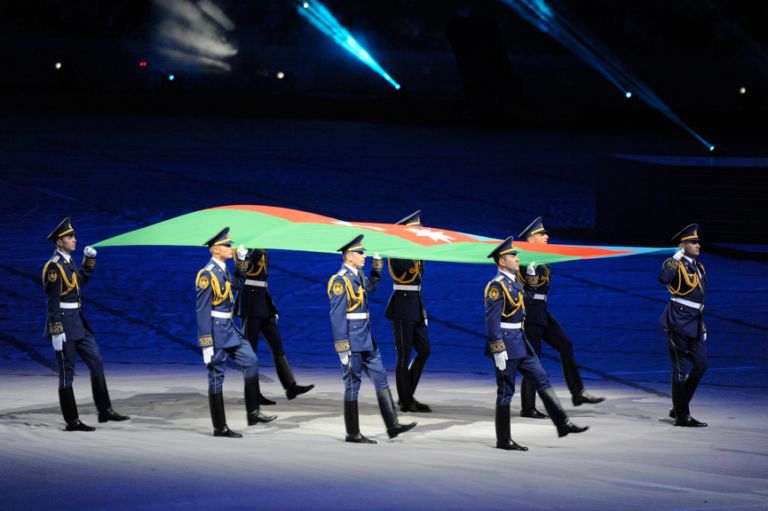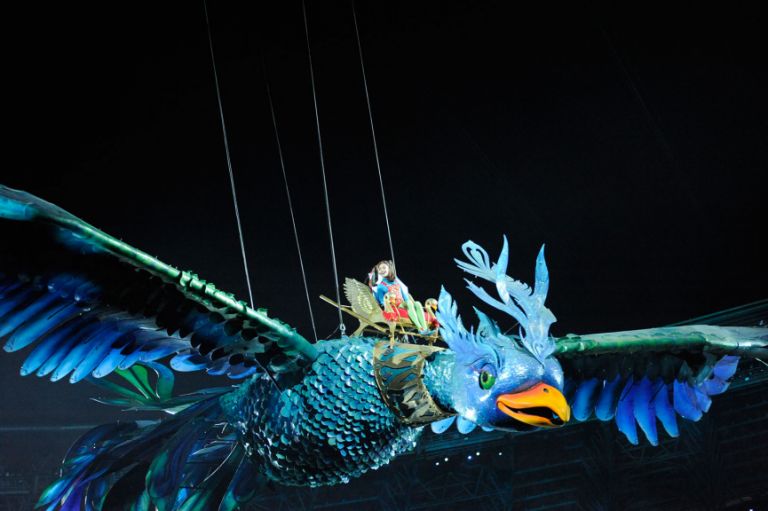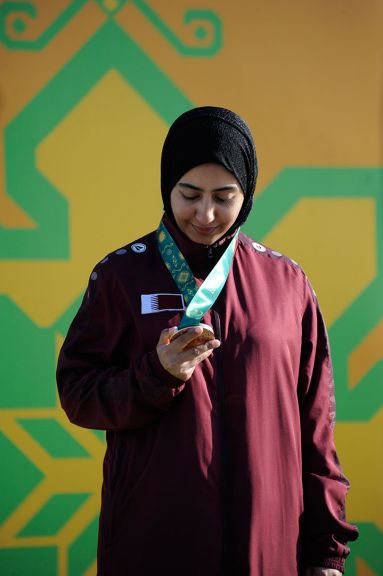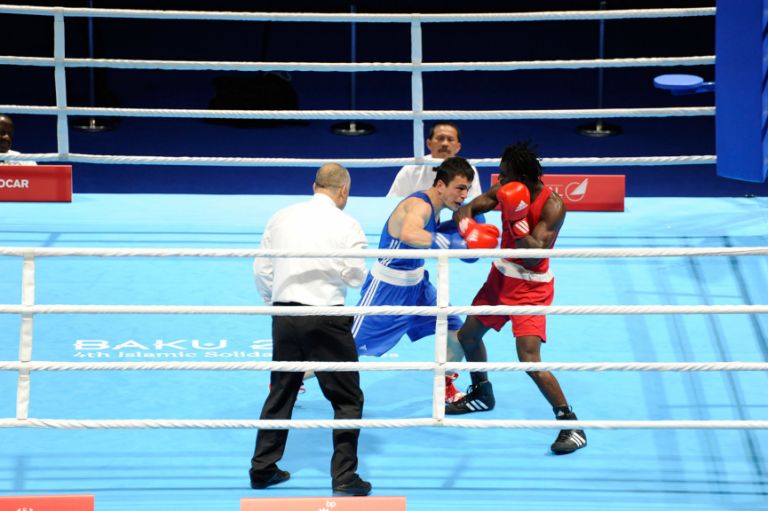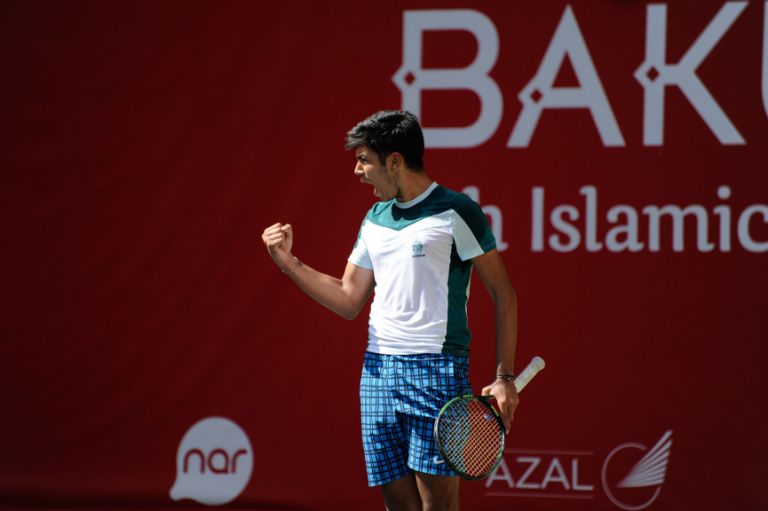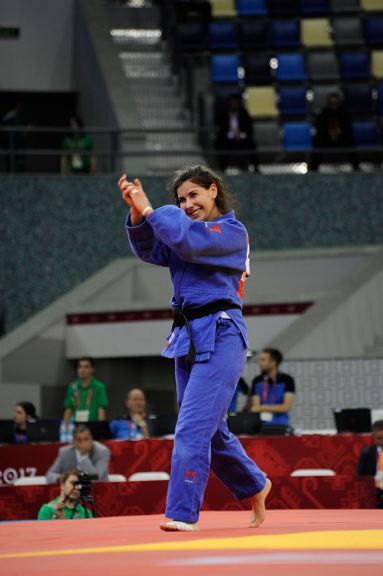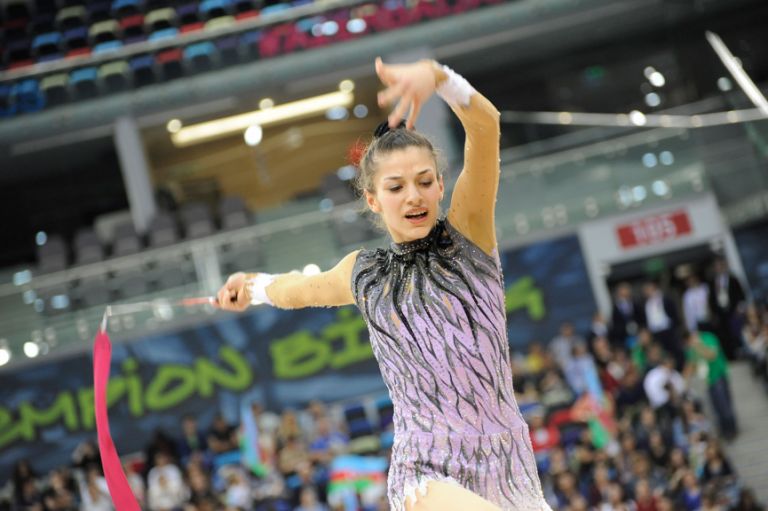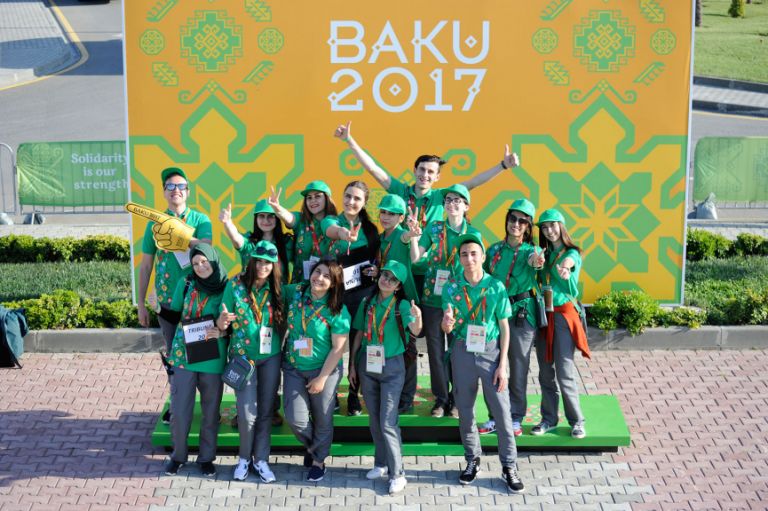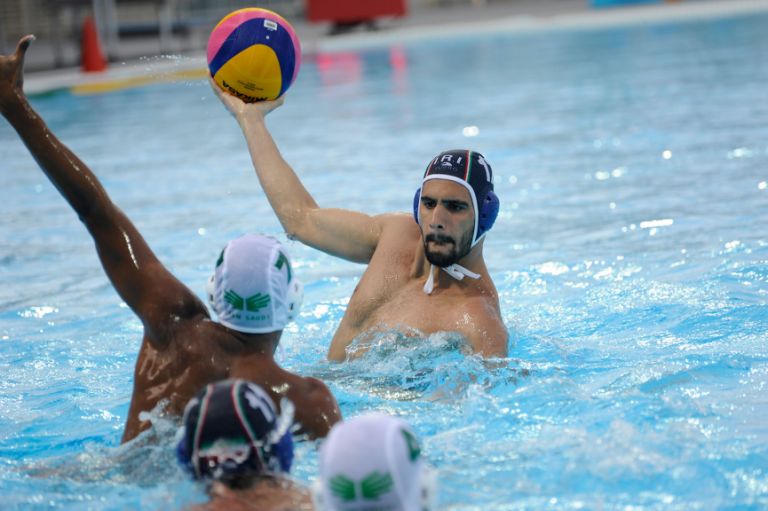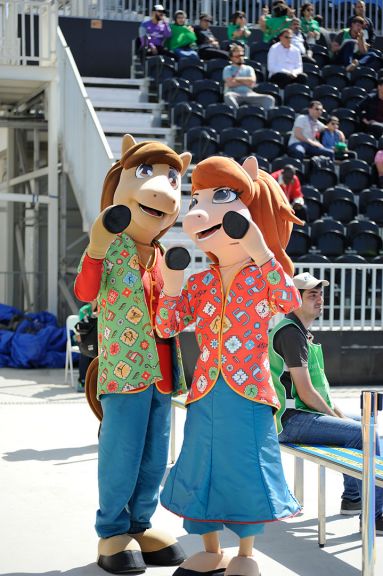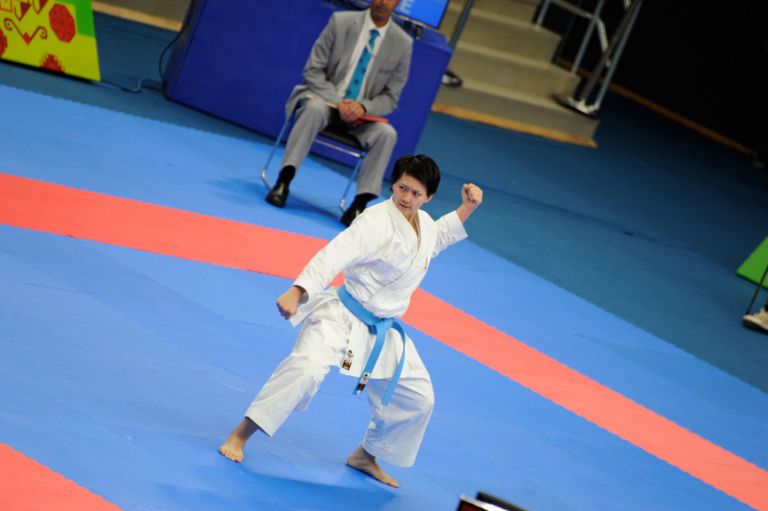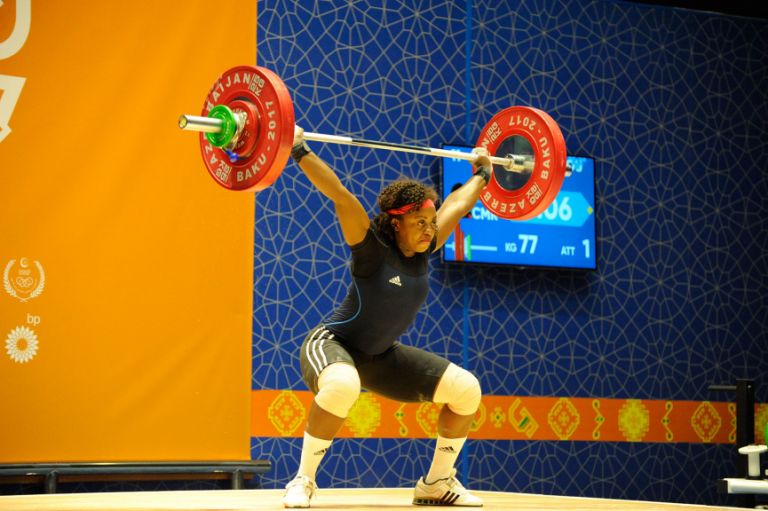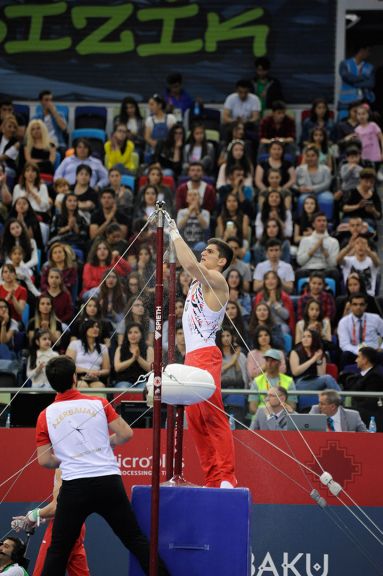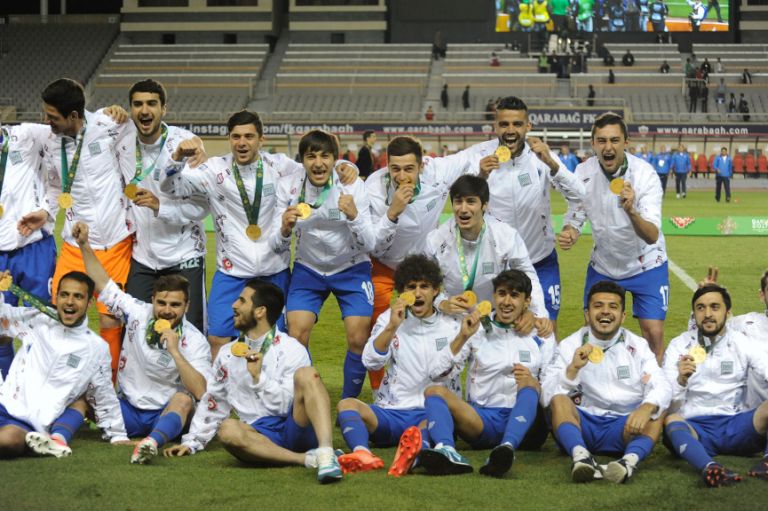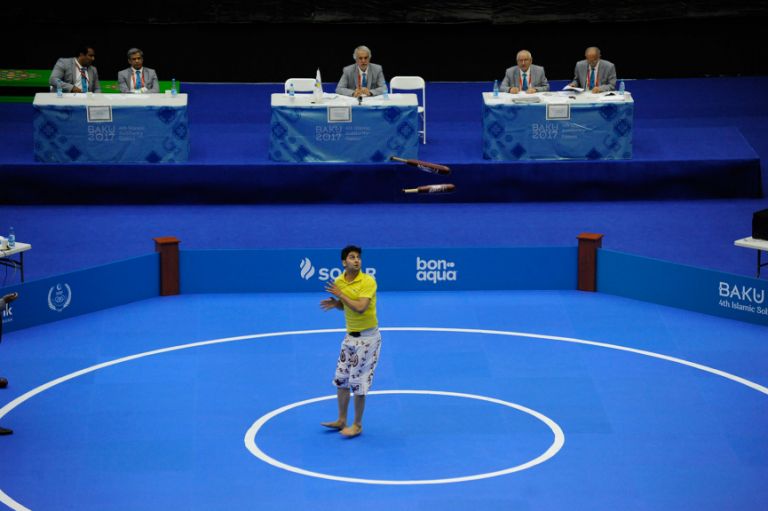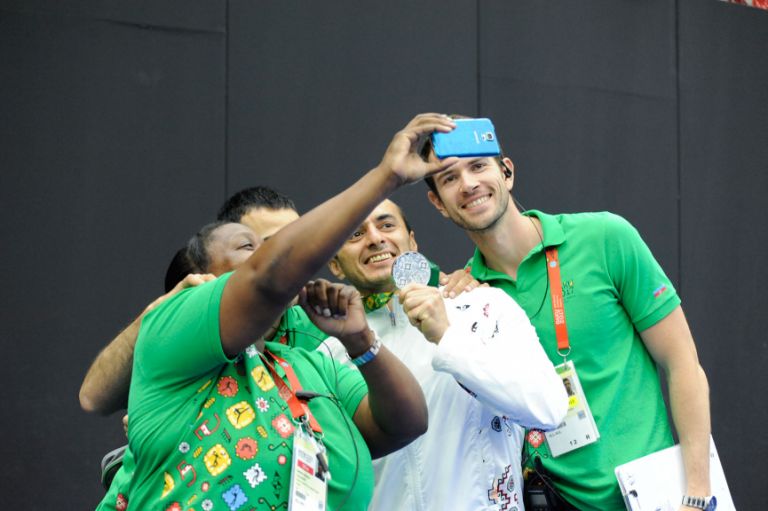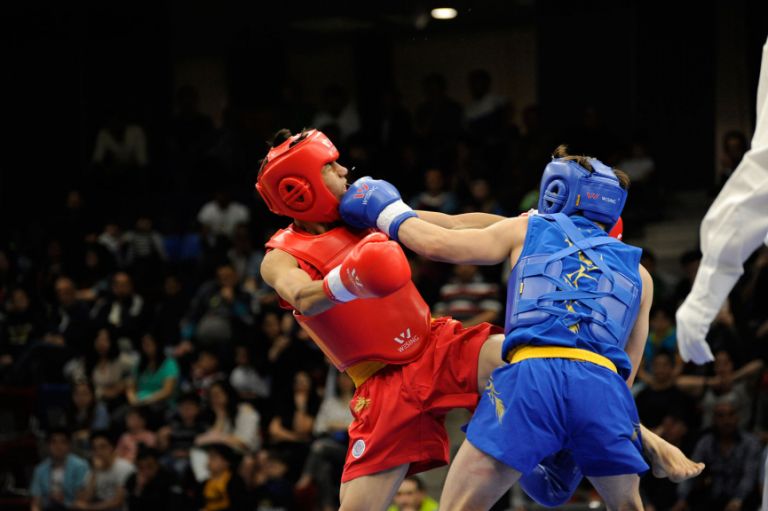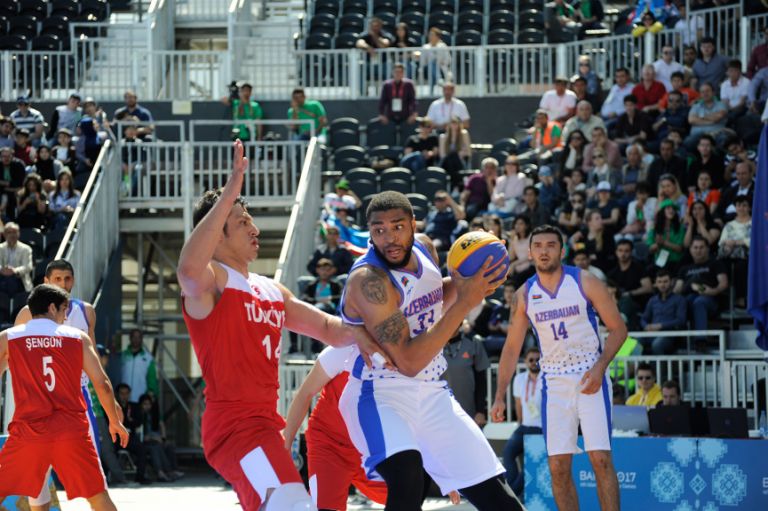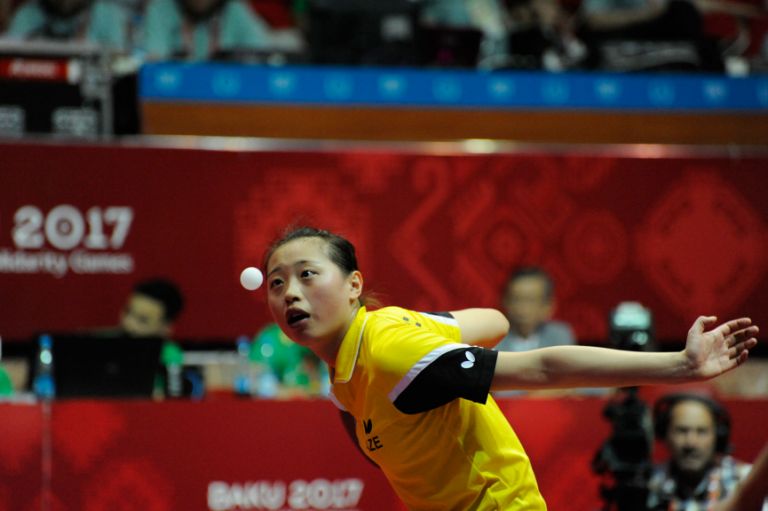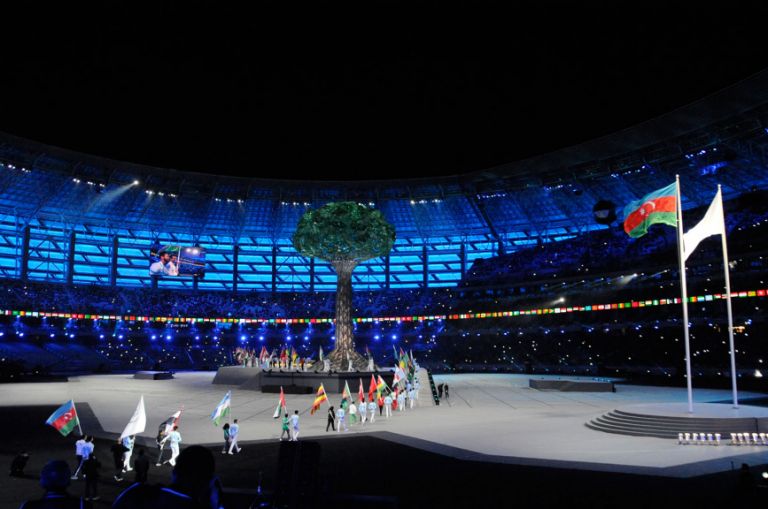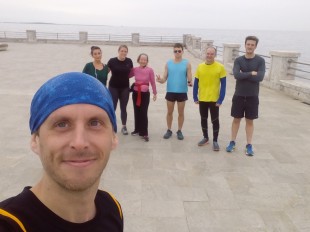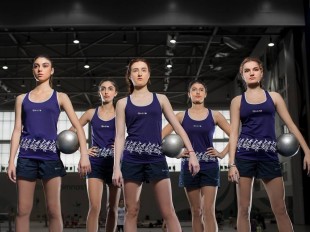Following the 2015 European Games and 2016 Chess Olympiad and in between two Azerbaijani-flavoured Formula 1s, another significant international sporting event took place in Baku this summer, which was no less significant but passed comparatively under the radar. Visions looks back on the 4th Islamic Solidarity Games (12-22 May).
Merely a month before the Azerbaijan Grand Prix, the second race of a 10-year contract between the country and Formula One Management, the Islamic Solidarity Games played out under the slogan Solidarity is Our Strength at a plethora of eye-catching venues around the capital, many of which were built only a few years earlier ahead of the First European Games. They featured 2,800 athletes from over 50 Muslim countries competing in 21 sports.
Yet given this Olympic-style event’s relative novelty and lack of coverage readers could be forgiven for wondering – what are the Islamic Solidarity Games? This Olympic-style sporting event is organised by the Islamic Solidarity Sports Federation and takes place every four years between the country members of the Organisation of Islamic Cooperation, which describes itself as the collective voice of the Islamic World. Although the Games aim to strengthen ties between said states, they arrived in Baku this summer with a history foreboding quite the opposite: the first edition passed relatively smoothly in Saudi Arabia in 2005 but the second, due to take place in Iran in 2009, was marred by a dispute between Iran and Arab states over the use of the term “Persian Gulf” in the official logo. Having initially been postponed, they were later cancelled altogether. The third iteration, which took place in Indonesia in 2013, was not without incident either: the host city had to be changed twice in the run-up and then some nations complained about bikinis being worn by female athletes.
So when the curtain was raised at the opening ceremony on 12 May at the Baku Olympic Stadium the jury was probably still out on the 4th Islamic Solidarity Games. However nerves were likely settled by an opening night no less extravagant than two years previously at the European Games: a mesmerizing display of fireworks, music, theatre and dance were moulded into a narrative expressing the togetherness of the Islamic World and its contribution to modern civilization, unfolding through the story of a young girl, Mina, who travelled the world with a kite in search of knowledge and enlightenment.
Two-horse race
The colour, emotion and efficiency of the opening ceremony set the tone for the next ten days, towards the end of which the battle for medals supremacy had developed into a two-horse race. Unsurprisingly this involved Azerbaijan and Turkey, the two largest teams with over 300 athletes apiece. Turkey dominated the tennis, swimming and otherwise performed strongly across the board, winning an Islamic Solidarity Games record of 195 medals overall (71 gold). One standout performer was Baku-born Ramil Guliev who won the men’s 100 and 200m sprint double (and went on to win the 200m gold at the 2017 World Championships in London), while another was 18-year-old swimmer Viktoria Zeynep Gunes, who grabbed gold in the 100- and 200m breaststroke and 200- and 400m medley.
This wasn’t enough, however, to beat eventual overall winners Azerbaijan, who continued the tradition of host nations finishing top of the medals table. Although Azerbaijan’s tally of 162 medals was less than Turkey’s, a whopping 75 of them were gold (50 silver; 37 bronze). Traditionally strong in combat sports the Azerbaijanis naturally enjoyed success in the judo, wrestling, taekwondo and boxing, as well as in rhythmic gymnastics and usually less fruitful disciplines such as athletics, swimming and diving. An undoubted highlight was beating Oman 2-1 in a nail-biting final of the U23 football tournament – the greatest achievement in Azerbaijani football to date. Other Azerbaijani teams took gold in the men’s and women’s 3x3 basketball and women’s volleyball and handball.
Exceptional individual performers from the host nation were shooter Ruslan Lunev, who finished with five golds, swimmer Mikhail Shemberov with four golds in different disciplines and Ukrainian-born rhythmic gymnast Marina Durunda who won three golds and still found room for improvement: I know that I could have done better, but I’m happy because it’s not a bad result, she told baku2017.com, the official website of the Games.
Third place in the overall standings went to Azerbaijan’s southern neighbour Iran who swept the floor in the Chinese martial art wushu, winning six of seven gold medals on the final day of the Games. Wushu was one of three non-Olympic sports included in the Games, alongside basketball 3x3 and zorkhana, a word literally meaning “house of strength,” in which athletes demonstrate their poise and power in a programme of exercises accompanied by musical rhythms. In this ancient Eastern sport the Iranians also bagged six of seven available golds.
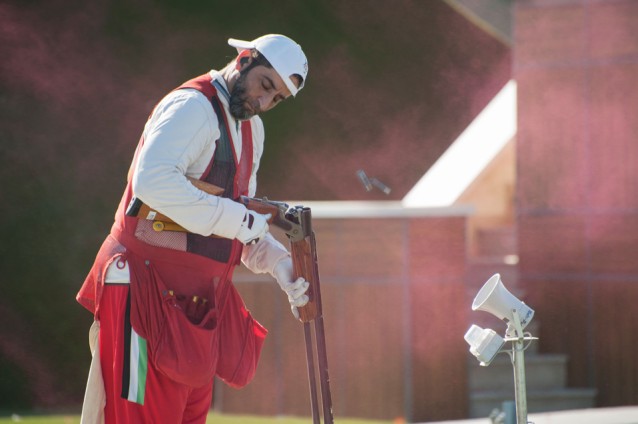 Shaikh Saeed Al Maktoum (UAE), silver medallist in the men’s skeet shooting, 16 May. Photo: Eldar Farzaliyev
Shaikh Saeed Al Maktoum (UAE), silver medallist in the men’s skeet shooting, 16 May. Photo: Eldar Farzaliyev
Several other nations shone in individual sports: Bahrain won the overall athletics with eleven golds, one more than second-placed Azerbaijan, and topped the overall table among Arab nations; Indonesia lit up the wrestling in the early stages; Egypt made its presence felt in the weightlifting with Shaimaa Haridy smashing the Islamic Solidarity Games record in the women’s +90kg category; and Uzbekistan punched its way to multiple medals in the boxing. Worth mentioning too were the maiden gold medals won by Benin (women’s 100m hurdles – Odile Ahouanwanou), Guinea-Bissau (women’s discus – Jessica Da Silva), Cameroon (women’s shot put – Auriol Dongmo) and Mozambique (men’s 400m hurdles – Creve Armando Machava).
Passing the baton
The Games then came to a close on 22 May at a closing ceremony which as opposed to 10 days earlier focused on Azerbaijani heritage and the character of the host city – “the city of winds.” It began by depicting gold dust blown from a young woman in Icherisheher (Baku’s Old City) travelling around the city’s iconic sights, carried by the warm southern gusts of the Gilavar wind that famously blows across eastern parts of Azerbaijan. The spirit of solidarity was later illuminated by the ceremonial watering of a “tree of life” before the focus switched to celebrating the 12,000 volunteers that formed a crucial cog in the operation of the Games, many of them veterans of the European Games, Chess Olympiad and Formula 1.
If the athletes were the beating heart of Baku 2017, you were its shining soul, said First Vice President and Chairman of the Organising Committee Mehriban Aliyeva of the volunteers in her closing speech, in which she summed up the essence of the Games as follows:
Over the past 10 days, athletes from across the Islamic world came together in an inspirational celebration of sport, friendship and unity. Their courage and dedication was truly moving, their performances wonderful to watch […]
These Games and many other important international sporting, cultural and political events have sealed Baku’s reputation as a centre for openness and tolerance. Our capital opened its arms to the Islamic sporting community, and the success of these Games is a tribute to the dedication and passion of all Azerbaijan.
A roaring display of fireworks brought everything to a dramatic end, following which a few possible conclusions can be drawn: firstly, that the 4th Islamic Solidarity Games broke the trend of controversy that affected earlier editions, from bikini bickering to logo politics and untimely organization, and secondly, that they added another chapter to a growing resume of hosting international events, thereby bolstering the country’s chances of a possible third-time-lucky Olympics bid attempt. At the very least, the baton has now passed to Istanbul (the next host city in 2021) in healthy form and the Islamic Solidarity Sports Federation has a solid foundation upon which to grow its brand.
The above text was largely based on official reporting on the official website of the 4th Islamic Solidarity Games – www.baku2017.com
In the accompanying photo essay our photographer Eldar Farzaliyev sought to capture the colour and emotion of the 4th Islamic Solidarity Games. Meanwhile our digital team produced the short video below…